Today we wrapped up a semester of Botany with our informal homeschool co-op by taking a scavenger hunt hike with three families who have children close in age to ours. This concept of sharing educational experiences with a few friends is the essential definition of an educational “co-op” — or at least it should be. However, as homeschooling has grown in popularity and population, the simple homeschool co-op has morphed into a complex and often costly proposition.
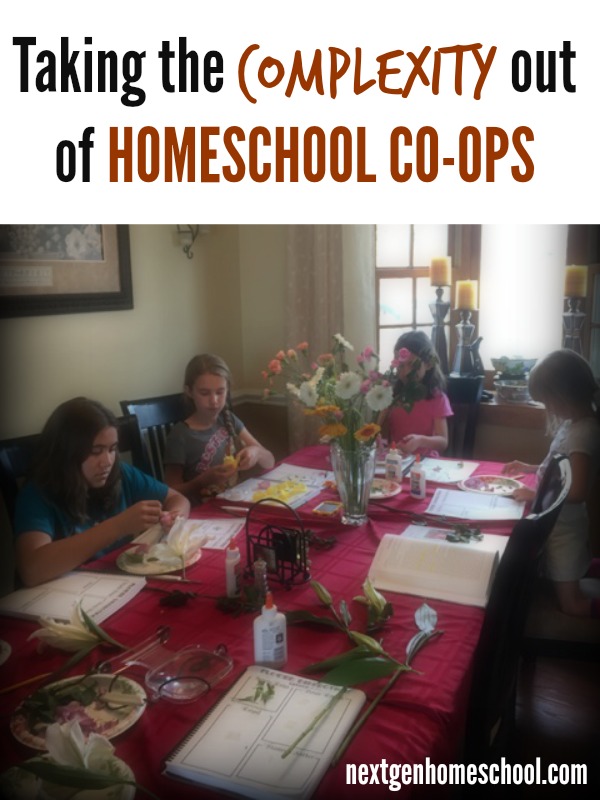
Our first year of homeschooling, the local homeschool support group we joined hosted a weekly academic co-op that we could choose to participate in. Because my eldest two daughters were transitioning from a private school, I was very thankful to have this option available to help them adjust to homeschooling. Through our weekly co-op, the girls shared classes on art, music, writing and geography with other elementary-age children in our homeschool group. Plus we all made good friends — I think I enjoyed that part the most!
However, our homeschool group grew A LOT that year, and it wasn’t feasible to continue the weekly co-op without formalizing the program and securing A LOT more volunteer help from parents. So we spent that second year homeschooling independently, adding a couple of homeschool enrichment programs (worship dance and PE Plus) to our weekly schedule for added social time and academic development.
We enjoyed these new programs, but I did miss the parental participation and consistency we experienced in that first year of cooperative education. When I looked around at more formal homeschooling co-op options, I found that they were either too expensive, too time consuming, too “public” (school district controlled), or too far off the target we established for our homeschool mission. Nothing that was already organized and available really fit the needs of our family.
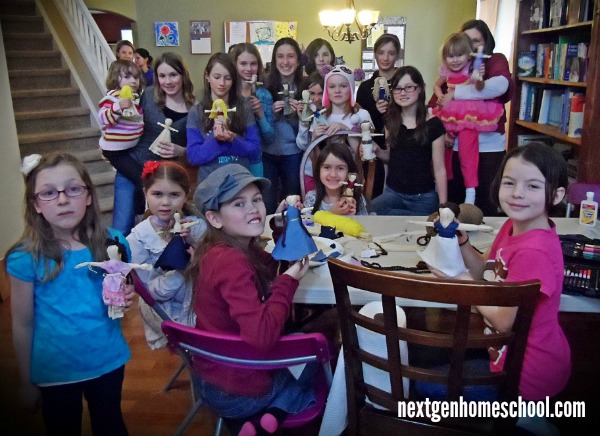
So I started an informal co-op of my own: First I started a tween girls book club, and two years later, that group developed into a Daring Daughters moms and daughters mentoring group. This semester, we added an informal Botany science co-op. I’m happy to say that these two SIMPLE co-ops have not only met our family’s needs without adding the complexity of a formal, classroom-driven co-op, they’ve given other participating families the opportunity to do the same!
I’m here to tell you that you CAN take the complexity out of homeschool co-ops! Here’s how:
1) Start with your homeschool mission. The most important thing you can do as a homeschooling parent is establish a clear mission statement and stick to it! When it comes time to evaluate participation in any outside options, your mission statement will help guide you to those activities that meet your mission instead of taking focus away from your mission. If you don’t have a homeschool mission statement, you can create one using this free template, which also includes an example from our family: Homeschool Mission Worksheet.
2) Find a few friends with common goals. You don’t need a large group to experience the benefits of cooperative education. In fact, I think that larger groups can make it harder to follow Priority No. 1: Your personal homeschool mission. Our first semester of girls book club, we had about 30 moms and daughters participating — and it wasn’t easy! We had a lot of fun together, but we also learned a lot about what we did and didn’t need to enhance the educational experience for our daughters.
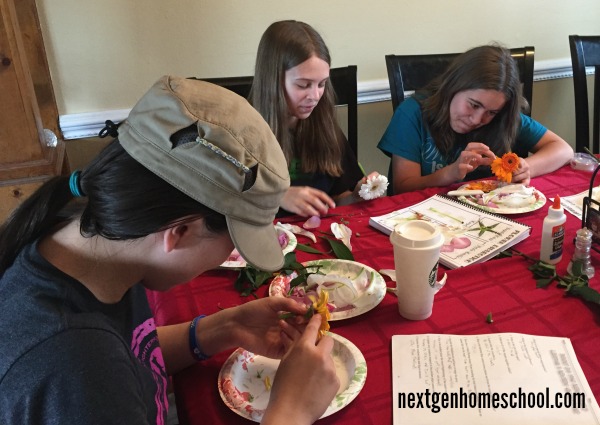
3) Choose a common theme or curriculum. For our girls book club, we chose classic books such as The Little House series by Laura Ingalls Wilder and Chronicles of Narnia by C.S. Lewis, making it very easy to find existing unit study resources online for our co-op to use to discuss and expand upon these timeless literary works. For our Botany co-op, we selected Apologia’s Exploring Creation With Botany, which comes with a student notebook and lots of projects for our little group to complete together. The bottom line: You don’t have to purchase special “co-op” teaching materials or a big package to have a successful learning experience with your group!
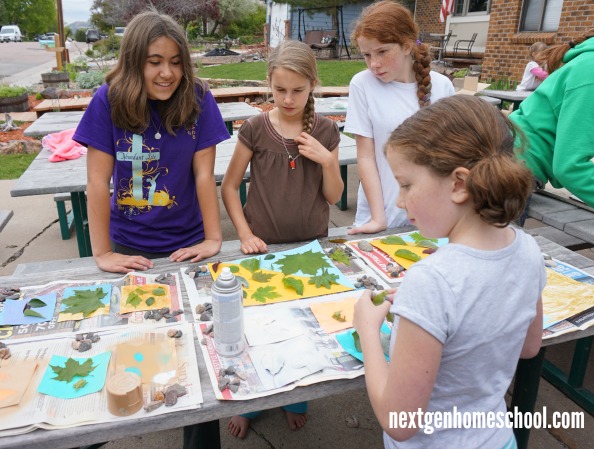
4) Find a time to meet regularly and keep it flexible. Our book club met twice a month on Wednesday afternoons to give the girls time to complete their reading and make it easier for families to participate without a weekly commitment. This also gave us an easy back-up option if a meeting had to be cancelled: We could just move it to the next open Wednesday. We did meet weekly with our Botany co-op, but we also had a backup day in place that worked for the three families participating. Keeping your co-op small also makes it easier to adjust your meeting schedule when necessary because you don’t have too many different schedules to align. Being able to meet regularly without putting a strain on your existing weekly homeschool flow is important: You don’t want the co-op to burn you out or take away from what you’re trying accomplish with your children at home.
5) Enjoy the accountability and fellowship. Although your first instinct may be to cover academic subjects you think you “need” a co-op for (such as science, foreign languages or art), there are many other benefits to participating in cooperative education that are just as important. It’s helpful to have the accountability of frequent meetings so we stay on pace with our co-op’s lesson schedule. Some homeschooling moms have no problem following their lesson plans independently, but I enjoy the nudge of knowing we need to stay on track for our co-op.

Last but not least, the fellowship with other homeschooling families is a key reason we continue to participate in co-ops. Your homeschooling journey doesn’t have to be a lonely one, and it’s up to you to make sure that doesn’t happen. Even if you don’t live in an area with large formal homeschool support groups, fellowship with just one or two homeschooling families on a regular basis will keep you energized and encouraged. An informal homeschool co-op with just a little bit of structure is a great way to incorporate learning and fellowship with a purpose.
Do you participate in any homeschool co-ops? If so, is it a large organized co-op or smaller and informal? What do you enjoy most about it? What are the challenges? If not, what questions or concerns do you have about co-op schooling? Let us know in the comment section below.

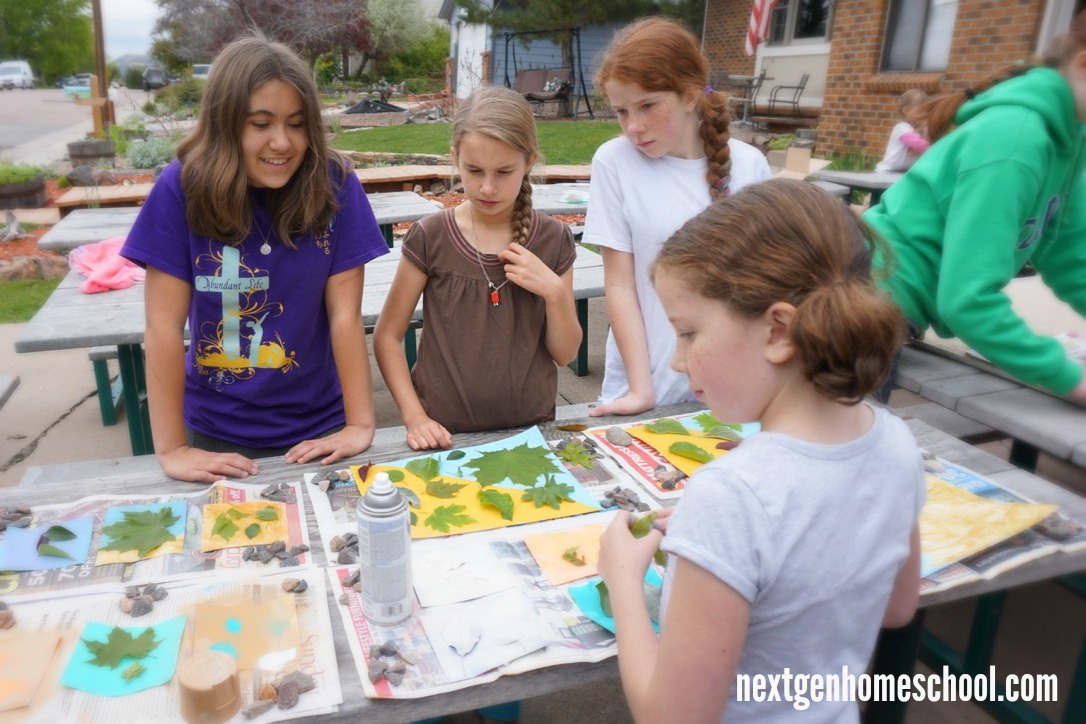
Loved this!